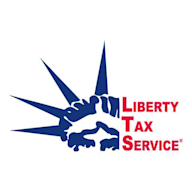Search results
Steps to File a Tax Return
- 1. Gather your paperwork such as W-2 from all your employers.
- 2. Choose your filing status.
- 3. Decide how you want to file your (Click on any of the software options below).
- 4. Determine if you are taking the standard deduction or itemized deductions.
- 5. Hope you don’t owe money but if you do, learn how to make a tax payment.
Tax Preparation ServicesJan 30, 2024 · A 1031 exchange allows certain real estate investors to defer capital gains taxes when selling one investment property and reinvesting proceeds from the sale into another similar property. Taxes are only postponed, not eliminated, and investors still need to properly report 1031 exchanges to the IRS.
Nov 29, 2023 · Follow these steps to do a 1031 exchange: Identify the property you want to sell. This must be an investment property—not a primary residence—and it should ideally have appreciated in value...
People also ask
Do 1031 exchanges have to be reported to the IRS?
What is a 1031 exchange?
Can you recognize a loss in a 1031 exchange?
Do I need to report capital gains on a 1031 exchange?
- What Is Section 1031?
- Special Rules For Depreciable Property
- Changes to 1031 Rules
- 1031 Exchange timelines and Rules
- 1031 Exchange Tax Implications: Cash and Debt
- 1031S For Vacation Homes
- Moving Into A 1031 Swap Residence
- 1031S For Estate Planning
- How to Report 1031 Exchanges to The IRS
- The Bottom Line
Broadly stated, a 1031 exchange (also called a like-kind exchange or a Starker exchange) is a swap of one investment propertyfor another. Most swaps are taxable as sales, although if yours meets the requirements of 1031, you’ll either have no tax or limited tax due at the time of the exchange. In effect, you can change the form of your investment w...
Special rules apply when a depreciable property is exchanged. It can trigger a profit known as depreciation recapture, which is taxed as ordinary income. In general, if you swap one building for another building, you can avoid this recapture. However, if you exchange improved land with a building for unimproved land without a building, then the dep...
Before the passage of the Tax Cuts and Jobs Act (TCJA) in December 2017, some exchanges of personal property—such as franchise licenses, aircraft, and equipment—qualified for a 1031 exchange. Now only real property (or real estate) as defined in Section 1031 qualifies.It’s worth noting, however, that the TCJA full expensing allowance for certain ta...
Classically, an exchange involves a simple swap of one property for another between two people. However, the odds of finding someone with the exact property that you want who wants the exact property that you have are slim. For that reason, the majority of exchanges are delayed, three-party, or Starker exchanges (named for the first tax case that a...
You may have cash left over after the intermediary acquires the replacement property. If so, the intermediary will pay it to you at the end of the 180 days. That cash—known as boot—will be taxed as partial sales proceeds from the sale of your property, generally as a capital gain. One of the main ways that people get into trouble with these transac...
You might have heard tales of taxpayers who used the 1031 provision to swap one vacation home for another, perhaps even for a house where they want to retire, and Section 1031 delayed any recognition of gain. Later, they moved into the new property, made it their principal residence, and eventually planned to use the $500,000 capital gain exclusion...
If you want to use the property for which you swapped as your new second or even principal home, you can’t move in right away. In 2008, the IRS set forth a safe harbor rule, under which it said it would not challenge whether a replacement dwelling qualified as an investment property for purposes of Section 1031. To meet that safe harbor, in each of...
One of the downsides of 1031 exchanges is that the tax deferral will eventually end and you’ll be hit with a big bill. However, there is a way around this. Tax liabilities end with death, so if you die without selling the property obtained through a 1031 exchange, then your heirs won’t be expected to pay the tax that you postponed paying. They’ll i...
You must notify the IRS of the 1031 exchange by compiling and submitting Form 8824 with your tax return in the year when the exchange occurred. The form will require you to provide descriptions of the properties exchanged, the dates when they were identified and transferred, any relationship that you may have with the other parties with whom you ex...
A 1031 exchange can be used by savvy real estate investors as a tax-deferred strategy to build wealth. However, the many complex moving parts not only require understanding the rules, but also enlisting professional help—even for seasoned investors.
Sep 8, 2023 · Fill Out Form 8824. Filling out Form 8824 requires inputting basic information such as your name and identification number. Next, the properties' details and the exchange itself should be entered. Line items in this form will help you report the fair market value, cash received or paid, and the basis of the properties.
- What is IRS Form 8824, and why is it important in a 1031 Exchange?IRS Form 8824, "Like-Kind Exchanges," is used to report each 1031 Exchange. The form helps taxpayers provide details about the properties exchanged...
- What is 'Boot' in a 1031 Exchange, and how is it reported?'Boot' refers to any cash or non-like-kind property received in a 1031 Exchange. It's often received when the properties exchanged are not of equal...
- What should I do if I've made a mistake in my previous 1031 Exchange reporting?If a mistake is discovered in the previous 1031 Exchange reporting, an amended return should be filed. This allows you to correct previously filed...
- How long should I keep records of my 1031 Exchange?Records of your 1031 Exchange should be kept for at least three years after the exchange has been reported on your tax return. However, keeping the...
- Can I handle a 1031 Exchange and its reporting on my own?While it's possible to handle a 1031 Exchange and its reporting on your own, it's often recommended to get professional help due to its complexity....
If the 180-day exchange period is before the April filing date, your return will be on time. If it’s after, you need to file for an extension using IRS Form 4868 . You’ll need to fill out specific tax forms and provide information about the properties for the IRS. IRS Form 8824: Like-Kind Exchange. All 1031 exchanges are reported on IRS Form 8824.
Under the Tax Cuts and Jobs Act, Section 1031 now applies only to exchanges of real property and not to exchanges of personal or intangible property. An exchange of real property held primarily for sale still does not qualify as a like-kind exchange.
A 1031 exchange transaction is reported on the tax return for the tax year that the relinquished property was transferred even if the exchange was not completed in that same year.





